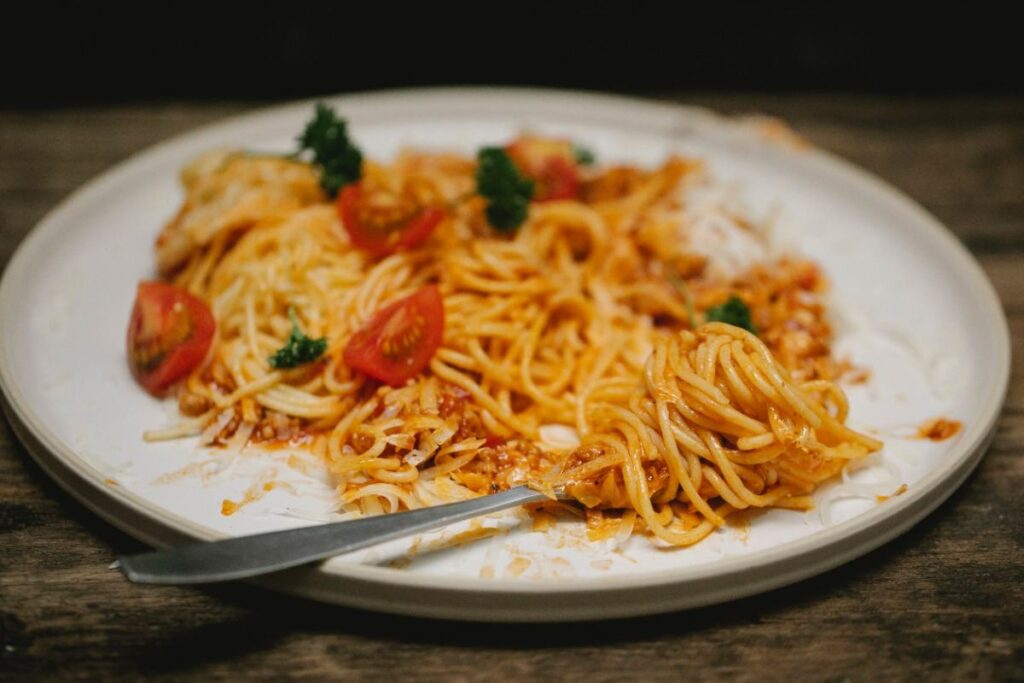Anxiety has a way of seeping into every aspect of our lives, affecting not only our mental state but also our physical health. One of the most common yet often overlooked symptoms of anxiety is loss of appetite. It’s an unexpected side effect that can add to the stress and discomfort we’re already feeling.
When we’re anxious, our bodies respond by going into “fight or flight” mode. This response triggers various physiological changes, including a decreased desire to eat. Our focus shifts away from hunger and towards addressing the perceived threat, causing us to lose interest in food.
It’s important to note that while temporary changes in appetite can be part of a normal response to stress, prolonged loss of appetite may signal a more serious issue like an anxiety disorder. If you’re consistently finding yourself too anxious to eat, it might be time to seek professional help.
Understanding Anxiety and Loss of Appetite
It’s not uncommon to feel your stomach churn when you’re stressed out. But have you ever noticed that sometimes, stress can make you lose your appetite completely? This isn’t just in your head – there’s a scientific reason behind anxiety-induced loss of appetite.
When we’re anxious, our body goes into ‘fight or flight’ mode. Our adrenal glands pump out stress hormones like cortisol and adrenaline, which suppress our appetite as our bodies prepare to respond to the perceived threat. It’s a primal response designed for survival, but in today’s modern world these reactions often occur in response to non-life-threatening situations.
Let’s look at some statistics:
| Percentage of people who lose their appetite due to anxiety | 30% |
|---|---|
| Number of Americans diagnosed with Generalized Anxiety Disorder (GAD) each year | 6.8 million |
These numbers show that anxiety-related loss of appetite is more common than you might think.
Anxiety doesn’t always cause a loss of appetite though; it can also lead to overeating for some people. In fact, it’s quite individual how anxiety affects one’s eating habits.
- Some people experience an increased craving for comfort foods.
- Others will find they’re too distracted by their worries to remember to eat.
- And then there are those who feel nauseous at the thought of food when they are anxious.
So next time you notice a change in your eating habits, consider whether anxiety could be playing a role. Remember it’s okay if this happens once in awhile – we all have tough days! But if it becomes a regular occurrence or starts impacting your health, don’t hesitate to seek help from a healthcare professional.
Causes of Anxiety-Induced Loss of Appetite
It’s widely accepted that our emotions can drastically influence our eating habits. When we’re happy, it’s not uncommon to celebrate with a hearty meal. Yet, during times of stress or anxiety, you might notice that your appetite has taken a hit. Let’s delve deeper into why this happens.
Anxiety can trigger an array of physiological responses. These include rapid heart rate, sweaty palms, and yes—loss of appetite. The connection between anxiety and loss of appetite is primarily due to the body’s response to stress: the fight-or-flight response. This primal reaction releases adrenaline (epinephrine), preparing your body for action.
Here’s how it works:
- The adrenal glands pump out adrenaline.
- This hormone triggers various bodily reactions.
- Blood diverts from non-essential functions like digestion.
- As a result, feelings of hunger diminish.
Another factor at play here is cortisol—the body’s primary stress hormone—which also affects appetite levels. While acute stress may suppress hunger initially, chronic anxiety tends to elevate cortisol levels persistently. In some instances, this could lead to increased cravings and potential weight gain over time.
A common misconception is that everyone who suffers from anxiety loses their appetite; however, this isn’t always the case. Often people have different physical responses to anxiety; some might experience loss of appetite while others may eat more as a coping mechanism.
To put things in perspective:
| Anxiety Level | Likely Impact on Appetite |
|---|---|
| Mild | Minor changes |
| Moderate | Possible decrease |
| Severe | Significant loss |
In summary: when you’re anxious or stressed out regularly, your body reacts by adjusting its priorities away from digesting food towards dealing with perceived threats—thus leading to loss of appetite amidst other symptoms related to anxiety disorder.
The Physiology Behind Anxiety and Reduced Hunger
Ever wondered what’s happening in your body when anxiety hits and suddenly food seems unappetizing? Let me take you on a journey through the complex interactions between your brain, hormones, and gut that can lead to this unexpected response.
Your body’s immediate reaction to stress or anxiety is often referred to as the “fight or flight” response. This primal instinct kicks into gear when we’re under threat and need to either confront it head-on (fight) or make a swift exit (flight). To facilitate this high-energy state, your adrenal glands release adrenaline which ramps up heart rate, blood pressure, and alertness. Now here’s where appetite comes into play: since digesting food isn’t seen as essential during these crises moments, adrenaline also suppresses hunger.
But how exactly does anxiety link with loss of appetite? It all has to do with another hormone called cortisol. When we’re chronically stressed or anxious, our bodies keep pumping out cortisol which maintains that suppressed appetite even after the initial adrenaline rush subsides.
Meanwhile, there’s another player in this physiological drama – our gut! Did you know it has its own nervous system often dubbed ‘the second brain’? This enteric nervous system communicates with the central nervous system (which includes your actual brain), particularly via serotonin – a neurotransmitter that regulates mood…and guess what else? Appetite! About 95% of serotonin receptors are found in our gut lining. So when anxiety sends these neurochemicals haywire, it can really mess with our desire to eat.
Finally remember: Everyone experiences anxiety differently; some people might find their appetites increase rather than decrease. Understanding your own responses can help manage them better in times of stress.
Here are some quick facts:
- Adrenaline released during ‘fight or flight’ suppresses hunger.
- Chronic stress leads to continued production of cortisol which keeps appetite low.
- The gut’s ‘second brain’ communicates with the central nervous system, affecting mood and appetite.
This interaction between anxiety and appetite is a complex web of hormones, neurotransmitters, and bodily systems. It’s fascinating…and sometimes frustrating! But it helps to remember that these responses are your body’s way of keeping you safe in times of perceived danger.
Effects of Persistent Loss of Appetite on Health
It’s no big secret that eating properly is critical for maintaining good health. But what happens when anxiety-induced loss of appetite throws a wrench in your dietary habits? Let me break it down for you.
First, we’ve got to consider the impact on our weight. When we’re not getting enough food, our bodies start tapping into stored fat and muscle for energy. That may sound like a dieter’s dream come true, but don’t be fooled. Long-term lack of appetite can lead to unwanted weight loss and muscle wasting – two serious health issues that shouldn’t be taken lightly.
Next up is nutrient deficiency. If you’re not eating right, chances are you’re missing out on key nutrients your body needs to function optimally – think vitamins, minerals, proteins and more. Over time, this can lead to serious conditions like anemia or osteoporosis.
Thirdly, let’s take a look at the effect on mental wellbeing. It might seem odd linking nutrition with mental health but trust me – they’re more connected than you’d think. Nutrient deficiencies can exacerbate feelings of anxiety and depression while also impacting cognitive abilities such as concentration and memory.
Lastly (but certainly not least), there’s the risk of developing an eating disorder like Anorexia Nervosa or Bulimia Nervosa amongst others. Constantly ignoring hunger signals due to anxiety might make it easier for disordered eating patterns to set in.
So there you have it: four major ways persistent loss of appetite could wreak havoc with your health.
Psychological Impact of Anxiety on Eating Habits
It’s striking how much our mental state can affect our physical behaviors, especially when it comes to food intake. Anxiety, a common emotional response to stress, can significantly influence eating habits in various ways. Some folks might find themselves overeating as a coping mechanism; others might lose their appetite entirely.
Anxiety operates like an alarm system in the brain, putting us on high alert. When this happens, many people experience what’s known as ‘anxiety-induced loss of appetite.’ Your brain goes into survival mode and pushes aside non-essential functions like digestion. This is why you may not feel hungry during periods of intense anxiety or stress.
Let’s look at some numbers:
| Percentage | Response |
|---|---|
| 62% | Reported decreased appetite due to anxiety |
| 38% | Reported increased appetite due to anxiety |
These figures highlight that more than half of individuals with anxiety report a decrease in hunger. Yet, there’s still a sizeable portion who respond by eating more under stress—an example of how varied our bodies’ reactions can be.
Here are some common reasons for these changes:
- Stress Response: Our body’s fight-or-flight response puts digestion on hold.
- Gut Health: Anxiety can upset your digestive balance leading to disorders like irritable bowel syndrome (IBS).
- Comfort Eating: For some people, food serves as an emotional salve during stressful times.
Notably, these alterations in eating patterns aren’t just passing phases—they often lead to long-term changes in dietary habits and overall health. So next time you’re feeling anxious and notice a shift in your desire for food remember: It’s not just you—it’s biology!
Practical Ways to Manage Loss of Appetite from Anxiety
Tackling loss of appetite due to anxiety can seem like a daunting task, but I’m here to tell you that there are practical steps you can take. And remember, it’s not about forcing yourself to eat when you’re not hungry. It’s about addressing the root cause – your anxiety.
Firstly, consider mindful eating. This isn’t some new-age fad; it’s an approach backed by science. When we’re anxious, we often disconnect from our bodies and ignore hunger signals. Mindful eating encourages us to slow down and pay attention to these signals. You’ll be surprised how much more appetizing food becomes when we actually taste it!
Secondly, try regular exercise – another scientifically proven method for reducing anxiety levels. Exercise releases endorphins (“feel good” hormones) which naturally boost your mood and appetite. Plus, physical activity uses up energy making you more likely to feel hungry afterward.
Thirdly, ensure you’re getting enough sleep each night. Poor sleep increases cortisol (a stress hormone), leading to heightened anxiety and decreased appetite the next day.
Lastly, but most importantly, seek professional help if needed. Therapists can provide strategies such as cognitive-behavioral therapy (CBT) or medication that directly address the underlying anxiety causing your loss of appetite.
Here are some actionable tips:
- Practice mindfulness and meditation
- Engage in regular physical activity
- Ensure adequate sleep
- Seek professional help if necessary
Remember everyone is unique; what works best will depend on individual factors including severity of symptoms and personal lifestyle choices.
Don’t underestimate the power of small changes – they add up! With persistence and patience, managing loss of appetite from anxiety is definitely within reach.
Professional Treatments for Anxiety and Eating Issues
Let’s talk about how professional treatments can address both anxiety and eating issues. In many cases, these two concerns are intertwined, leading to a vicious cycle of exacerbated anxiety and deteriorating eating habits.
Therapy is one effective treatment option. Cognitive Behavioral Therapy (CBT), for example, is often used as it helps individuals recognize harmful patterns in their thoughts and actions. It’s tailored to each person’s needs, making it a versatile tool for managing anxiety and eating disorders.
Next on the list are medications prescribed by psychiatrists. Antidepressants like selective serotonin reuptake inhibitors (SSRIs) or benzodiazepines can help manage anxiety symptoms, while appetite stimulants might be useful for those experiencing loss of appetite.
Additionally, there’re specialized treatment centers that provide comprehensive care to individuals grappling with these issues. They offer services such as nutritional counseling, medical monitoring, therapy sessions, and even group support activities.
Here are some statistics about professional treatments:
| Treatment Type | Success Rate |
|---|---|
| CBT | 60-70% |
| Medication | 50-55% |
Lastly but certainly not least: lifestyle changes play a crucial role in managing both anxiety and eating issues. Regular exercise promotes better mental health by releasing endorphins – your brain’s feel-good neurotransmitters. A balanced diet rich in whole grains, lean proteins, fruits, veggies can also make a huge difference in overall wellbeing.
Remember though: what works best will depend on individual circumstances – so consulting with healthcare professionals before embarking on any treatment plan is vital.
Conclusion: Navigating the Journey Towards Recovery
I’ve come to understand that grappling with anxiety and loss of appetite can be a challenging journey. It’s an interwoven issue where mental health impacts physical well-being and vice versa. Yet, I’m here to reassure you—it’s not a battle you have to fight alone.
Firstly, it’s crucial not to ignore these symptoms. There’s no shame in acknowledging your struggles and seeking help. Remember, it’s okay if your first step seems small—you’re making progress nonetheless.
I’d also like stress the importance of professional help. A therapist or psychiatrist can guide you through this maze by providing tools and techniques for managing anxiety. They’ll assist in creating a roadmap tailored specifically for your recovery journey.
However, don’t forget the role of self-care in this process:
- Regular exercise
- Healthy eating habits
- Adequate sleep
- Time for relaxation and hobbies
These elements are as critical as any therapy session or medication regimen.
Lastly, patience is pivotal on this path towards recovery. Overcoming anxiety isn’t an overnight affair—it’s a gradual process filled with peaks and valleys. Celebrate your victories, no matter how small they seem!
While navigating this journey may feel overwhelming at times, remember it’s worth every step towards reclaiming control over your life from anxiety-induced loss of appetite. I sincerely hope my insights provide some comfort and guidance during these challenging times.



